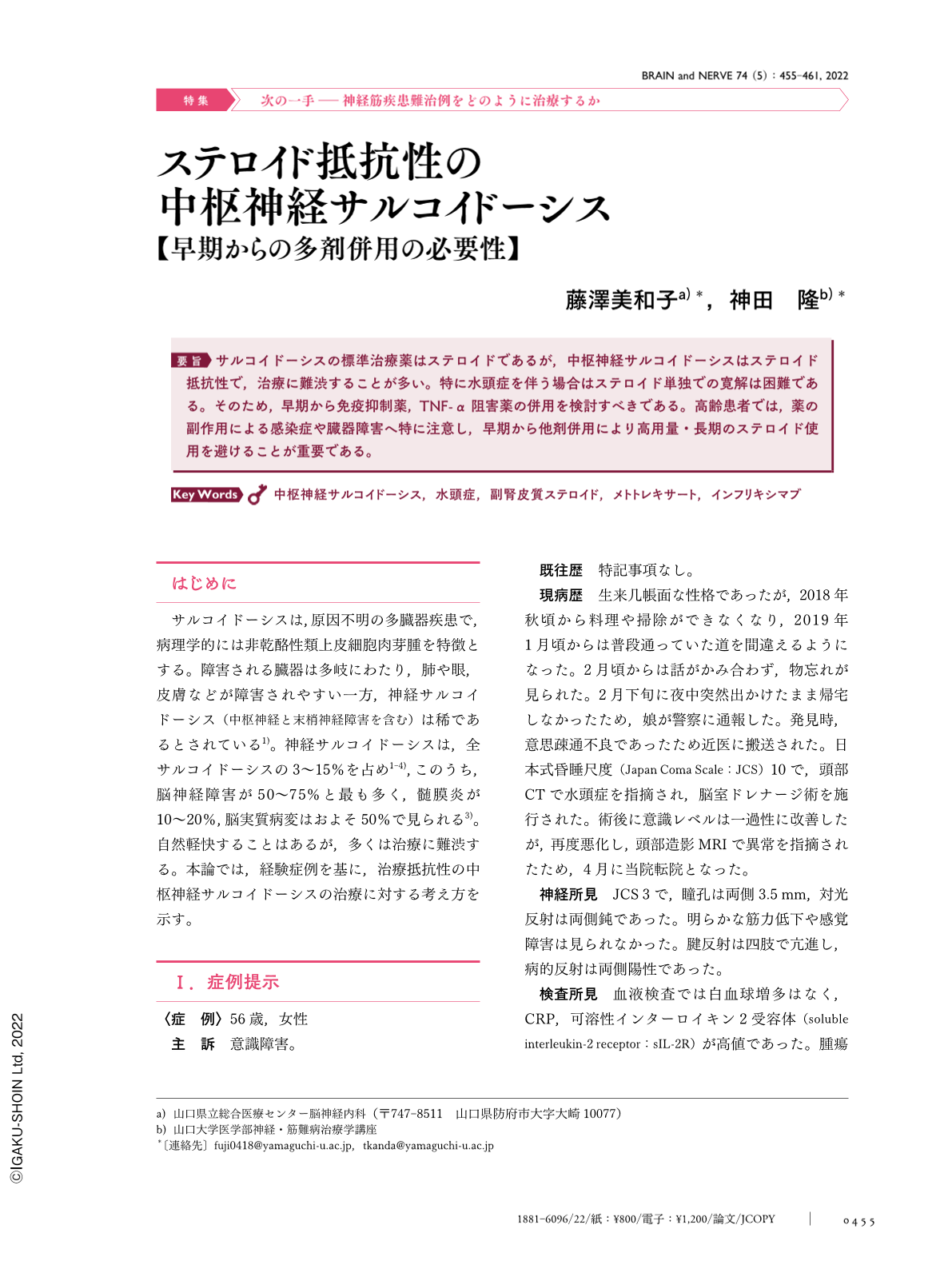Japanese
English
- 有料閲覧
- Abstract 文献概要
- 1ページ目 Look Inside
- 参考文献 Reference
サルコイドーシスの標準治療薬はステロイドであるが,中枢神経サルコイドーシスはステロイド抵抗性で,治療に難渋することが多い。特に水頭症を伴う場合はステロイド単独での寛解は困難である。そのため,早期から免疫抑制薬,TNF-α阻害薬の併用を検討すべきである。高齢患者では,薬の副作用による感染症や臓器障害へ特に注意し,早期から他剤併用により高用量・長期のステロイド使用を避けることが重要である。
Abstract
Sarcoidosis is a granulomatous multiorgan disease of unknown etiology that commonly affects the respiratory system, eyes, and skin, and less commonly affects the nervous system. Because of its rarity, a standard treatment for central nervous system (CNS) sarcoidosis has not yet been established. Corticosteroids remain the cornerstone of CNS sarcoidosis treatment. However, CNS sarcoidosis, other than isolated facial nerve paralysis, is often refractory to treatment and requires long-term corticosteroid treatment. In particular, patients with hydrocephalus have a high mortality rate and a lack of response to this treatment. Therefore, immunosuppressants, including TNF-α inhibitors and corticosteroids, should be considered as the initial treatment. For older patients, it is important to pay attention to infection as an adverse event and to the toxicity of the therapeutic agents. Because steroid-related adverse events are more common in the older patient group, the lowest effective dose should be used, and the treatment duration should be kept as short as possible after careful evaluation of disease activity. Corticosteroid-sparing agents are effective at reducing the cumulative toxicity of corticosteroids. Recently, various new potential agents have emerged and their efficacy has been assessed. It is expected that more treatment options will be available for CNS sarcoidosis in future.

Copyright © 2022, Igaku-Shoin Ltd. All rights reserved.


